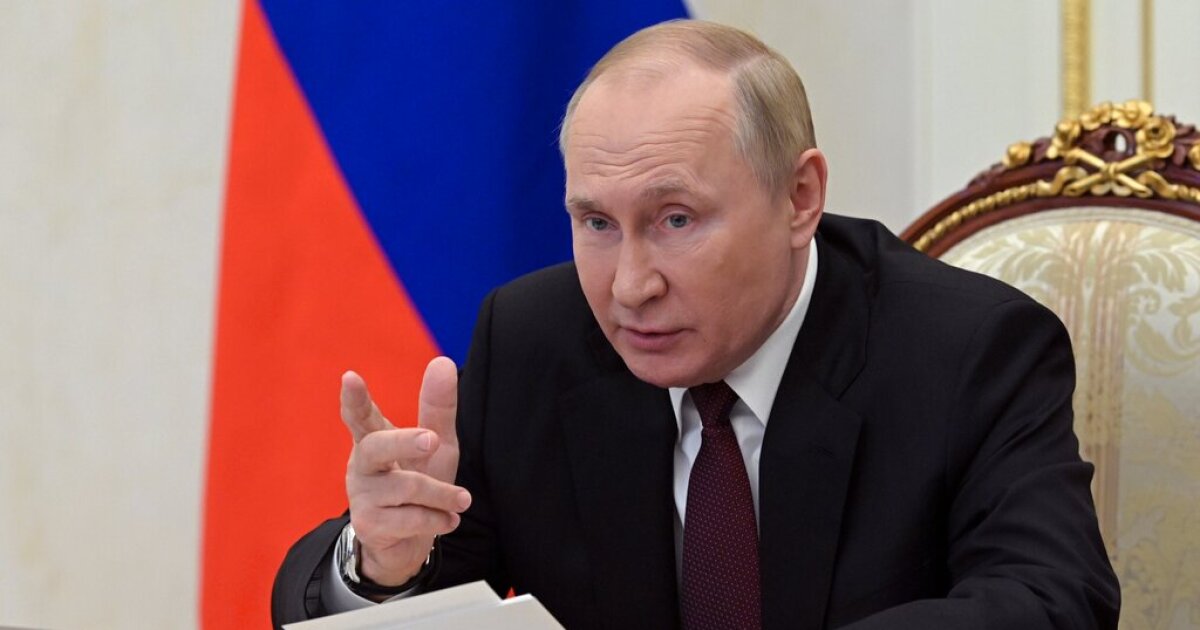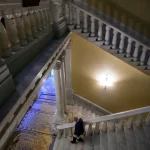

Russia has begun a series of drills designed to simulate its response to a nuclear attack on Wednesday, including practice launches of ballistic and nuclear missiles.
President Vladimir Putin remotely oversaw the annual exercise, called “Grom” (a word that translates to “thunder”), following the Russian leader’s warning that his forces have to be ready to use “all means available” to stop foreign adversaries.
The test launches of nuclear-capable ballistic and cruise missiles were successful, Russian officials said, according to Russian state media outlet RIA Novosti. Specifically, it included the test firing of a Yars land-based intercontinental ballistic missile, the launch of a Sienna ICBM from a Russian nuclear submarine in the Barents Sea, and the launch of cruise missiles from Tu-95 strategic bombers.
RUSSIA WALKS BACK RISK OF DIRTY BOMB PLOT AMID NATO WARNINGS
These Russian military exercises are annual, and the country notified the United States ahead of time in compliance with a U.S.-Russia arms agreement.
“Yes, the U.S. was notified,” Brig. Gen. Pat Ryder told reporters on Tuesday. “As we’ve highlighted before, this is a routine annual exercise by Russia. And so, in this regard, Russia is complying with its arms control obligations and its transparency commitments to — to make those notifications.”
The routine Russian military test comes as Russian leaders have alleged Ukraine is planning to deploy a “dirty bomb,” which Western officials have universally said is untrue.
“A dirty bomb is a bomb where you use conventional explosives to expand and scatter and to release agents which can cause more widespread and long-standing injuries beyond just the explosive blast,” National Security Council coordinator John Kirby told reporters earlier this week. “In the case of this particular allegation, it’s really about radioactive material.”
Russian Defense Minister Sergey Shoygu brought up the notion in recent conversations with his counterparts from the U.S., France, and the United Kingdom, while the foreign ministers from the three Western countries released a joint statement days ago calling the Russian allegations “transparently false.”
Similarly, NATO Secretary-General Jens Stoltenberg noted on Tuesday that “Russia often accuses others of what they intend to do themselves. We have seen this pattern before” and added that “Russia must not use false pretexts for further escalation. The world is watching closely.”
Russian Deputy Ambassador Dmitry Polyanskiy appeared to downplay the risk of a dirty bomb plot while speaking to reporters at the United Nations, saying on Tuesday: “If this all does not happen, I do not mind people saying that Russia is crying wolf because we are speaking about a terrible disaster that might potentially threaten the whole Earth.”
CLICK HERE TO READ MORE FROM THE WASHINGTON EXAMINER
Ukrainian officials have invited the U.N.’s nuclear watchdog agency to send a team of inspectors to the two facilities Russia claims are where Ukrainians are conducting their dirty bomb research.
“The IAEA inspected one of these locations one month ago, and all our findings were consistent with Ukraine’s safeguards declarations,” IAEA Director General Rafael Grossi said this week. “No undeclared nuclear activities or material were found there.”






